|
Books Should Be Free Loyal Books Free Public Domain Audiobooks & eBook Downloads |
|
|
Books Should Be Free Loyal Books Free Public Domain Audiobooks & eBook Downloads |
|
Top Authors |
|---|
|
Book type:
Sort by:
|
By: William Harrison Ainsworth (1805-1882) | |
|---|---|
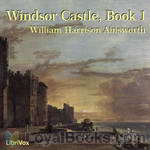 Windsor Castle, Book 1
Windsor Castle, Book 1
Book 1 - Ann Boleyn. The focus of the novels is on the events surrounding Henry VIII's replacing Catherine of Aragon with Anne Boleyn as his wife. During Henry's pursuit of Boleyn, the novel describes other couples, including the Earl of Surrey and Lady Elizabeth Fitzgerald, a match Henry does not support. However, some of the individuals oppose Henry and his desires for Boleyn, including Thomas Wyat who wants her for himself and Cardinal Wolsey, who uses his own daughter, Mabel Lyndwood, to lure Henry away from Boleyn... | |
By: Samuel Butler (1835-1902) | |
|---|---|
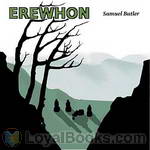 Erewhon
Erewhon
Erewhon, or Over the Range is a novel by Samuel Butler, published anonymously in 1872. The title is also the name of a country, supposedly discovered by the protagonist. In the novel, it is not revealed in which part of the world Erewhon is, but it is clear that it is a fictional country. Butler meant the title to be read as the word Nowhere backwards, even though the letters “h” and “w” are transposed. It is likely that he did this to protect himself from accusations of being unpatriotic, although Erewhon is obviously a satire of Victorian society. | |
 The Way of All Flesh
The Way of All Flesh
The Way of All Flesh (1903) is a semi-autobiographical novel by Samuel Butler which attacks Victorian-era hypocrisy. Written between 1873 and 1884, it traces four generations of the Pontifex family. It represents the diminishment of religious outlook from a Calvinistic approach, which is presented as harsh. Butler dared not publish it during his lifetime, but when it was published it was accepted as part of the general revulsion against Victorianism. | |
By: William McGonagall (1825-1902) | |
|---|---|
 Temperance Gems
Temperance Gems
Good people all, of every degree,I pray, ye all be warned by me:I advise ye all to pause and think,And never more to taste strong drink. Some people do say it is good when taken in moderation,But, when taken to excess, it leads to tribulation,Also to starvation and loss of reputation,Likewise your eternal soul’s damnation. McGonagall has been widely acclaimed as the worst poet in British history. He campaigned vigorously against excessive drinking, appearing in pubs and bars to give edifying poems and speeches... | |
By: Richard D. Blackmore | |
|---|---|
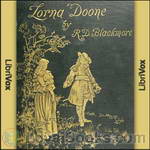 Lorna Doone, a Romance of Exmoor
Lorna Doone, a Romance of Exmoor
“If anybody cares to read a simple tale told simply” … thus opens Lorna Doone, one of the best love stories ever written. The novel has inspired at least ten movies and mini-series. “John (in West Country dialect this is pronounced Jan) Ridd is the son of a respectable farmer who was murdered in cold blood by a member of the notorious Doone clan, a once-noble family now living in the isolated Doone Valley. Battling his desire for revenge, John also grows into a respectable farmer and continues to take good care of his mother and two sisters... | |
 Erema
Erema
A few years before the great Civil War, a young English woman and her father, having left the security of their wagon train, are lost in the unforgiving Californian desert, looking in vain for the landmark that marks the short-cut across those last western mountains which would lead them to the home of an old friend. George Castlewood gives all the water and rations he has to his daughter, Erema, and dies just a short distance from help. Rescued by kind Sampson “Uncle Sam” Gundry, the family friend they had been seeking, Erema lives for a time at his saw mill... | |
By: Justus Liebig (1803-1873) | |
|---|---|
 Familiar Letters on Chemistry
Familiar Letters on Chemistry
Justus von Liebig (1803-1873) was a German chemist who made major contributions to agricultural and biological chemistry and is known for his discovery of nitrogen as an essential plant nutrient. These letters “were written for the especial purpose of exciting the attention of governments, and an enlightened public, to the necessity of establishing Schools of Chemistry, and of promoting by every means, the study of a science so intimately connected with the arts, pursuits, and social well-being of modern civilised nations.” | |
By: G. K. Chesterton | |
|---|---|
 All Things Considered
All Things Considered
Another delightful and sharply pointed excursion into the topics of the day, and of this day as well, with Gilbert Keith Chesterton. These reprinted magazine articles are filled with his good natured wit, his masterful use of paradox, and devastating ability to use reductio ad absurdum to destroy the popular myths that drive a society driving full-speed into secular humanism. You will come away with a whole new collection of wonderful quotes. (Ray Clare) | |
 The Ballad of St. Barbara and Other Verses
The Ballad of St. Barbara and Other Verses
This book of poetry by G.K. Chesterton, originally published in 1922, contain 35 poems on a variety of subjects. | |
By: US Army Corps of Engineers, Manhattan District | |
|---|---|
 The Atomic Bombings of Hiroshima & Nagasaki
The Atomic Bombings of Hiroshima & Nagasaki
This is the official report, published nearly 11 months after the first and only atomic bombings in history (to date), of a group of military physicians and engineers who accompanied the initial contingent of U.S. soldiers into the destroyed cities of Hiroshima and Nagasaki. The report presents a clinical description of the devastation, loss of life and continued suffering of the survivors that resulted from the world’s first and only atomic bombings. The appendix is an eyewitness account, contrasting... | |
By: Georgette Heyer | |
|---|---|
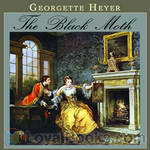 The Black Moth
The Black Moth
Jack Carstares, oldest son of the Earl Wyncham, has been disgraced by his brother. Gone for six years, living the life a highwayman he meets the woman he will fall in love with. Saving her from being kidnapped by a dastardly blackguard he is injured and must stay with her family until he is able to return to his life…will she discovery his true identity? Will he be able to leave her when the time comes? Mystery and humor follow this intriguing cast of characters until the very end. (Summary by Terra Mendoza) | |
By: Arthur Machen (1863-1947) | |
|---|---|
 The White People
The White People
Literary critics see Arthur Machen’s works as a significant part of the late Victorian revival of the gothic novel and the decadent movement of the 1890s, bearing direct comparison to the themes found in contemporary works like Robert Louis Stevenson’s The Strange Case of Dr Jekyll and Mr Hyde, Bram Stoker’s Dracula, and Oscar Wilde’s The Picture of Dorian Gray. The White People is a highly influential horror story of a young girl’s discovery of ancient magic. It was written in the late 1890s as part of a longer unfinished novel, some sketches from which went into his book Ornaments in Jade. Fans of supernatural fiction often cite this story as a classic in the genre. | |
 Hill of Dreams
Hill of Dreams
The novel recounts the life of a young man, Lucian Taylor, focusing on his dreamy childhood in rural Wales, in a town based on Caerleon. The Hill of Dreams of the title is an old Roman fort where Lucian has strange sensual visions, including ones of the town in the time of Roman Britain. Later it describes Lucian's attempts to make a living as an author in London, enduring poverty and suffering in the pursuit of art. Generally thought to be Machen's greatest work, it was little noticed on its publication in 1907 save in a glowing review by Alfred Douglas... | |
By: Hopkins, Gerard Manley (1844-1889) | |
|---|---|
 Poems of Gerard Manley Hopkins, ed. Robert Bridges
Poems of Gerard Manley Hopkins, ed. Robert Bridges
Gerard Manley Hopkins (1844–89) was an English poet, educated at Oxford. Entering the Roman Catholic Church in 1866 and the Jesuit novitiate in 1868, he was ordained in 1877. Upon becoming a Jesuit he burned much of his early verse and abandoned the writing of poetry. However, the sinking in 1875 of a German ship carrying five Franciscan nuns, exiles from Germany, inspired him to write one of his most impressive poems “The Wreck of the Deutschland.” Thereafter he produced his best poetry, including “God’s Grandeur,” “The Windhover,” “The Leaden Echo,” and “The Golden Echo.” | |
By: Constance Johnson | |
|---|---|
 When Mother Lets Us Cook
When Mother Lets Us Cook
A book of simple receipts for little folk with important cooking rules in rhyme together with handy lists of the materials and utensils needed for the preparation of each dish. | |
By: Varous | |
|---|---|
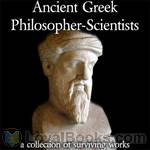 Ancient Greek Philosopher-Scientists
Ancient Greek Philosopher-Scientists
The Pre-Socratic Greek philosophers, that is, the philosopher-scientists who lived before or contemporaneously to Socrates, were the first men in the Western world to establish a line of inquiry regarding the natural phenomena that rejected the traditional religious explanations and searched for rational explanations. Even though they do not form a school of thought, they can be considered the fathers of philosophy and many other sciences as we have them now. None of their works is extant, so, in this collection, we present the textual fragments, when existing, of ten Pre-Socratic philosopher-scientists, and quotations and testimonials about them left by later authors... | |
By: Ernest William Hornung | |
|---|---|
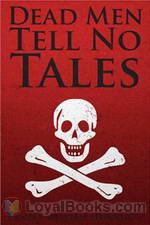 Dead Men Tell No Tales
Dead Men Tell No Tales
Ernest William Hornung (June 7, 1866 – March 22, 1921) was an English author. Hornung was the third son of John Peter Hornung, a Hungarian, and was born in Middlesbrough. He was educated at Uppingham during some of the later years of its great headmaster, Edward Thring. He spent most of his life in England and France, but in 1884 left for Australia and stayed for two years where he working as a tutor at Mossgiel station. Although his Australian experience had been so short, it coloured most of his literary work from A Bride from the Bush published in 1899, to Old Offenders and a few Old Scores, which appeared after his death... | |
By: Rufus Estes (b. 1857) | |
|---|---|
 Good Things to Eat as Suggested by Rufus
Good Things to Eat as Suggested by Rufus
Rufus Estes was born a slave in 1857 in Tennessee, and experienced first hand the turmoil of the Civil War. He began working in a Nashville restaurant at the age of 16, and in 1883 took up employment as a Pullman cook. In 1897, he was hired as principal chef for the private railway car of U.S. Steel magnates (the fin-de-siecle equivalent of today’s Lear Jets for corporate travel). There he served succulent fare for the rich and famous at the turn of the 20th century. | |
By: Richard Jefferies (1848-1887) | |
|---|---|
 After London, or Wild England
After London, or Wild England
First published in 1885, After London, or Wild England is considered to be one of the earliest instances of post-apocalyptic fiction, describing the effects of an unspecified catastrophe that dramatically changes the face of England and its population. Divided into two parts, the first depicts the fall of civilization, as society reverts to its more primitive roots, while the second part is set years after the apocalyptic event and examines the evident changes in both natural scenery and social structure... | |
 The Gamekeeper at Home
The Gamekeeper at Home
Richard Jefferies (1848 – 1887) was born and spent his childhood on a farm at Coate,Wiltshire. He joined the ‘Wiltshire and Gloucestershire Standard’ in 1868 and also started to write articles and pamphlets on various agricultural issues and local history topics. He is best known for his depiction of English rural life in essays, books of natural history, and novels. This classic of English nature writing gives an idea of the life of a gamekeeper in southern England in the second half of the nineteenth century. | |
By: Ann Radcliffe (1764-1823) | |
|---|---|
 The Mysteries of Udolpho
The Mysteries of Udolpho
Considered a change agent in early Gothic romance; oft-referenced in later literary works or paid homage to by such authors as Jane Austen (influential novel ready by her heroine, Catherine Morland, in Northanger Abbey); Edgar Allen Poe (borrowed plot elements for the short story The Oval Portrait); and Sir Walter Scott. In The Mysteries of Udolpho, one of the most famous and popular gothic novels of the eighteenth century, Ann Radcliffe took a new tack from her predecessors and portrayed her heroine’s inner life, creating an atmosphere thick with fear, and providing a gripping plot that continues to thrill readers today... | |
 A Sicilian Romance
A Sicilian Romance
A Sicilian Romance is a Gothic novel by Ann Radcliffe. It was her second published work, and was first published anonymously in 1790. The plot concerns the turbulent history of the fallen aristocrats of the house of Mazzini, on the northern shore of Sicily, as related by a tourist who becomes intrigued by the stories of a monk he meets in the ruins of their doomed castle. The introduction to the 'Worlds Classics' edition notes that in this novel "Ann Radcliffe began to forge the unique mixture of the psychology of terror and poetic description that would make her the great exemplar of the Gothic novel, and the idol of the Romantics"... | |
By: Sophocles (c. 497 BC - c. 406 BC) | |
|---|---|
 Oedipus Rex
Oedipus Rex
Oedipus the King (often known by the Latin title Oedipus Rex) is an Athenian tragedy by Sophocles that was first performed c. 429 BC. It was the second of Sophocles's three Theban plays to be produced, but it comes first in the internal chronology, followed by Oedipus at Colonus and then Antigone. Over the centuries, it has come to be regarded by many as the Greek tragedy par excellence. | |
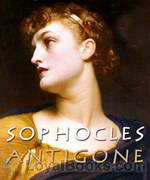 Antigone
Antigone
This is the final installment in Sophocles's Theban Plays, following Oedipus Rex and Oedipus at Colonus. Oedipus's daughter Antigone deliberately breaks the laws of Thebes when she buries her brother's body and is sentenced to death. She clashes with Creon, the King of Thebes, over what constitutes justice and morality: the laws of the state or the laws of the individual. | |
 Oedipus at Colonus
Oedipus at Colonus
This is the second installment in Sophocles's Theban Plays that chronicles the tragic fates of Oedipus and his family. After fulfilling the prophecy that predicted he would kill his father and marry his mother, Oedipus blinds himself and leaves Thebes, to wander in the wilderness accompanied by his daughters Antigone and Ismene. | |
 Electra
Electra
Sophocles' play dramatizes the aftermath of Agamemnon's murder by his wife Clytemnestra and her lover Aegisthus. His daughter Electra is hungry for revenge and longs for the return of her brother Orestes to help her achieve her ends. | |
By: George B. Grinnell | |
|---|---|
 Blackfeet Indian Stories
Blackfeet Indian Stories
The Blackfeet were hunters, travelling from place to place on foot. They used implements of stone, wood, or bone, wore clothing made of skins, and lived in tents covered by hides. Dogs, their only tame animals, were used as beasts of burden to carry small packs and drag light loads. The stories here told come down to us from very ancient times. Grandfathers have told them to their grandchildren, and these again to their grandchildren, and so from mouth to mouth, through many generations, they have reached our time. (Sibella Denton) | |
By: Anne Brontë (1820-1849) | |
|---|---|
 Agnes Grey
Agnes Grey
Agnes Grey is the daughter of a minister, whose family comes to financial ruin. Desperate to earn money to care for herself, she takes one of the few jobs allowed to respectable women in the early Victorian era, as a governess to the children of the wealthy. In working with two different families, the Bloomfields and the Murrays, she comes to learn about the troubles that face a young woman who must try to rein in unruly, spoiled children for a living, and about the ability of wealth and status to destroy social values. After her father's death, Agnes opens a small school with her mother and finds happiness with a man who loves her for herself. | |
By: Giacomo Casanova (1725-1798) | |
|---|---|
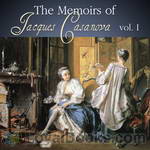 The Memoirs of Jacques Casanova
The Memoirs of Jacques Casanova
This is the first of five volumes. – Giacomo Casanova (1725 in Venice – 1798 in Dux, Bohemia, now Duchcov, Czech Republic) was a famous Venetian adventurer, writer, and womanizer. He used charm, guile, threats, intimidation, and aggression, when necessary, to conquer women, sometimes leaving behind children or debt. In his autobiography Histoire de ma vie (Story of My Life), regarded as one of the most authentic sources of the customs and norms of European social life during the 18th century, he mentions 122 women with whom he had sex... | |
By: Robert Bloch | |
|---|---|
 This Crowded Earth
This Crowded Earth
Robert Bloch was a prolific writer in many genres. As a young man he was encouraged by his mentor H. P. Lovecraft, and was a close friend of Stanley G. Weinbaum. Besides hundreds of short stories and novels he wrote a number of television and film scripts including several for the original Star Trek. In 1959 Bloch wrote the novel Psycho which Alfred Hitchcock adapted to film a year later. He received the Hugo Award, the World Fantasy Award, the Bram Stoker Award, and he is a past president of the Mystery Writers of America. Published in Amazing Stories in 1958, This Crowded Earth is a thriller set on an overpopulated Earth of the future. | |
By: Mark Phillips (Randall Garrett and Laurence M. Janifer) | |
|---|---|
 Brain Twister
Brain Twister
“Mark Phillips” is, or are, two writers: Randall Garrett and Laurence M. Janifer. Their joint pen-name, derived from their middle names (Philip and Mark), was coined soon after their original meeting, at a science-fiction convention. Both men were drunk at the time, which explains a good deal, and only one has ever sobered up. A matter for constant contention between the collaborators is which one. Originally published as That Sweet Little Old Lady, Brain Twister follows the adventures of FBI agent Kenneth J... | |
By: Elliott O’Donnell (1872—1965) | |
|---|---|
 Animal Ghosts
Animal Ghosts
Summary: This is a collection of ghost stories in which the antagonists are various animals. Divided up into chapters of ghost sightings by each group of animals, you will hear of hauntings by dogs, cats, birds, jungle animals, etc. (Summary by Allyson Hester) | |